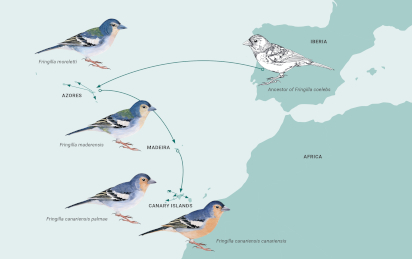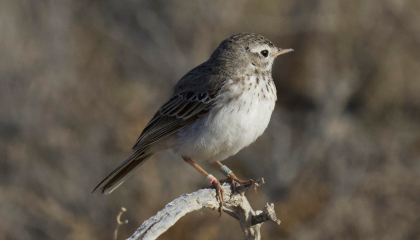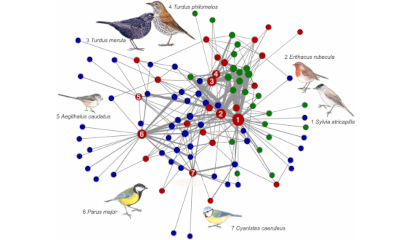Presentation
I am a biologist interested in understanding how species proliferate and change over time. My work uses molecular tools and fieldwork approaches to investigate evolutionary and ecological patterns and processes at both the individual and population level.
Much of this work has focused on island birds (using extinct and extant taxa) where I investigate the causes and consequences of adaptive (and non-adaptive) genetic variation to understand the mechanisms driving genetic and phenotypic differentiation and, ultimately, avian radiations.
In addition, I am also interested to investigate the ecological and evolutionary role of microbes (pathogens and microbiome) on their island avian hosts.
Most of this research is focused on the Macaronesian region (Azores, Madeira, Selvagens, Canary Islands and Cape Verde), and nearby continental areas both Iberian Peninsula and north Africa.
I also collaborate with other colleagues to shed light on evolutionary dynamics and biogeography of alpine grasshoppers in the Cantabrian Mountains; the role of birds and bats in pest control and seed dispersal in several farming areas; and the genomic architecture of migration using several avian non-model systems.
Teaching
Courses
I am currently teaching in two undergraduate degrees: Biology and Teaching Profession.
Biology (at Faculty of Biology, Oviedo)
- Environmental assessment (Practical exercises)
Teaching Profession (at Faculty of Teaching)
- Environmental Sciences (Theory and Practical)
Latest news

New paper posted
Avian island radiations shed light on the dynamics of adaptive and non-adaptive radiation.
Apr 15th, 2024

New paper posted
Genotype-environment associations reveal genes potentially linked to avian malaria infection in populations of an endemic island bird.
Mar 27th, 2024

New paper posted
Common birds combine pest control and seed dispersal in apple orchards though a hybrid interaction network.
Feb 12th, 2024